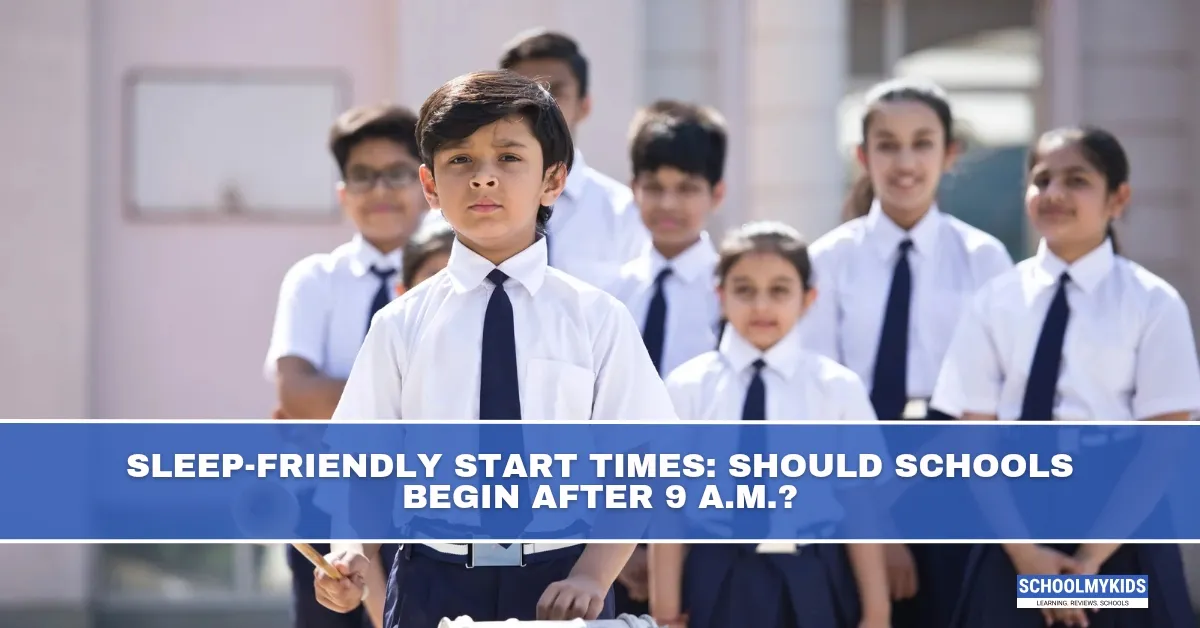At 6:45 a.m., fifteen-year-old Arjun Mehta stumbles through his morning routine in Mumbai, his body fighting against the early wake-up call. By the time he reaches his 7:30 a.m. first period, he's technically present but cognitively absent—a zombie teenager going through the motions of education while his brain remains in sleep mode.
Arjun's struggle isn't unique, and according to growing scientific evidence, it's not his fault. Sleep researchers worldwide are pushing for a radical rethink of school schedules, arguing that early start times are fundamentally mismatched with adolescent biology.
The Science of Teenage Sleep
Dr. Paul Kelley from Oxford University, working alongside Harvard researchers, has calculated that British children lose approximately 10 hours of sleep every week due to early school start times. His research suggests that children aged 8-10 should start school at 8:30 a.m. or later, 16-year-olds at 10 a.m., and 18-year-olds at 11 a.m..
The reasoning lies in circadian biology—the internal body clock that regulates sleep-wake cycles. During adolescence, this biological clock shifts dramatically. Teenagers naturally fall asleep later and wake up later than children or adults, a phenomenon called delayed sleep phase.
"We're essentially asking teenagers to perform complex cognitive tasks during what is biologically their sleep time," explains Dr. Kelley. "It's like expecting adults to do calculus at 3 a.m."
The Current Reality
Despite this scientific understanding, fewer than 15% of U.S. high schools start at 8:30 a.m. or later, and 42% start very early, at 8 a.m. or before. In India, where many schools begin with 6:55 a.m. assemblies, the situation is even more extreme.
The consequences extend far beyond drowsy students. Sleep deprivation in adolescents is linked to depression, anxiety, obesity, diabetes, and compromised immune function. Academic performance suffers significantly, with tired students showing reduced attention, memory consolidation, and creative problem-solving abilities.
Real-World Results
Schools that have experimented with later start times report remarkable improvements. When researchers studied the impact of delayed start times, they found significant benefits:
Academic gains: Students showed longer sleep duration on school nights and improved performance on standardized tests. The additional sleep translated directly into better learning outcomes and higher graduation rates.
Health improvements: Later start times correlated with reduced rates of depression and anxiety among teenagers. Students reported feeling more alert during classes and better able to concentrate on complex material.
Safety benefits: Perhaps most compellingly, car accident rates among teenage drivers dropped significantly in districts that adopted later start times. Sleep-deprived adolescents behind the wheel represent a serious public safety risk.
The Indian Context
In India, where academic competition is fierce and many students attend multiple coaching centers after school, the sleep crisis is particularly acute. Students often don't finish homework and study until late at night, then face brutally early school starts.
"My daughter leaves for school at 6:30 a.m. and doesn't return from tuition until 9 p.m.," shares Delhi parent Sunita Rao. "She's getting maybe five hours of sleep on school nights. How can we expect her to learn effectively in that condition?"
Dr. Kelley's research suggests that Indian students, already sleep-deprived from academic pressure, are further compromised by schedule misalignment. The early start times that many schools use to "maximize learning time" may actually be counterproductive.
The Resistance
Despite mounting scientific evidence, changing school start times faces significant practical and cultural resistance. Parents worry about childcare arrangements, after-school activities, and work schedules. Transportation systems built around early starts would require expensive overhauls.
In India, additional cultural factors complicate the issue. Many families view early rising as virtuous, connected to traditional values about discipline and dedication. The idea that teenagers need more sleep can be seen as indulgence rather than a biological necessity.
Sports and extracurricular activities represent another complication. Later school start times might push after-school activities later into the evening, potentially creating new scheduling conflicts.
Success Stories and Strategies
However, schools that have successfully implemented later start times offer models for overcoming these obstacles. Effective transitions typically involve:
Gradual implementation: Rather than dramatic overnight changes, successful schools phase in later start times over multiple years, allowing families and communities to adjust.
Community engagement: Schools that involve parents, teachers, and students in the decision-making process see greater buy-in and smoother transitions.
Creative scheduling: Some schools stagger start times by grade level, with older students starting later than younger ones, who are naturally earlier risers.
Transportation solutions: Districts have found ways to modify bus schedules and coordinate with other schools to make later start times logistically feasible.
Beyond Sleep: The Broader Benefits
The advantages of sleep-friendly start times extend beyond individual student wellness. Schools report improved classroom behavior, reduced disciplinary issues, and better teacher-student relationships when students arrive more alert and engaged.
Mental health improvements prove particularly significant. Adolescence is already a challenging time for emotional regulation, and sleep deprivation compounds these difficulties. Schools with later start times see reduced rates of self-harm, improved mood stability, and better social interactions among students.
Economic Arguments
From a cost-benefit perspective, later start times represent excellent investments. The relatively modest expense of adjusting schedules produces measurable returns in:
- Higher academic achievement scores
- Reduced healthcare costs from sleep-related health issues
- Decreased car accidents and associated costs
- Lower rates of depression and anxiety requiring intervention
- Improved long-term educational and career outcomes
The Path Forward
Implementing sleep-friendly start times requires acknowledging that traditional school schedules were designed for adult convenience, not adolescent biology. As our understanding of sleep science advances, maintaining practices that harm student health and learning becomes increasingly difficult to justify.
For Indian schools, this might mean reconsidering the value of early morning assemblies versus student well-being. For families, it means recognizing that adequate sleep isn't laziness—it's a biological requirement for healthy adolescent development.
The question isn't whether teenagers need more sleep—the science is clear on that point. The question is whether we're willing to prioritize student health and learning over administrative convenience and cultural assumptions about early rising.









Be the first one to comment on this story.